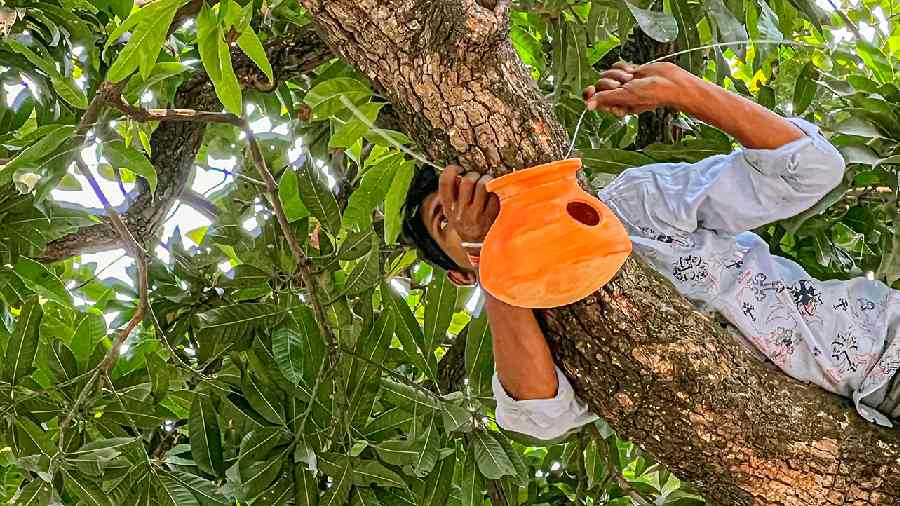Twenty small earthen pots with holes were hung from around eight trees inside The BSS School in Ballygunge on Saturday.
The pots will serve as nests for small birds, whose numbers in the city are dwindling because of habitat loss.
“The nests will be set up across 30 schools in Calcutta. Today was the first day,” said Joydip Kundu of the Society for Heritage and Ecological Research (SHER), the NGO behind the drive.
The artificial nests were set up on banyan, peepal, mango and jamun trees.
“The birds would bring sticks, twigs, leaves, grasses and other nesting materials on their own. We expect small birds like sparrows, mynas, and tailor birds to flock to these nests,” said Kundu.
The numbers of sparrows in urban areas are dwindling because of shrinking urban treescape, crevices and hollows of old buildings that used to be their nesting options.
According to a report called the State of India’s Birds, released in 2020, data from six largest metro cities — Bangalore, Chennai, Kolkata, Delhi, Hyderabad and Mumbai — indicated a gradual decline in the abundance of sparrows in urban centres.
But there is a lack of evidence for a countrywide decline, said the report, the first comprehensive assessment of the abundance and distribution trends of hundreds of bird species.
Scientists from the Wildlife Institute of India, Dehradun, the Bombay Natural History Society, Mumbai, the National Centre for Biological Sciences, Bangalore, among other institutions, collaborated in the project.
In Kolkata, the drive began on Saturday because it was the 126th birth anniversary of the legendary ornithologist Salim Ali.
“Our students will watch over the nests. We want to make them direct stakeholders in nature conservation. The drive may also motivate them to make a similar nest around their homes,” said Sudeshna Banerjee, vice-principal of The BSS School.
